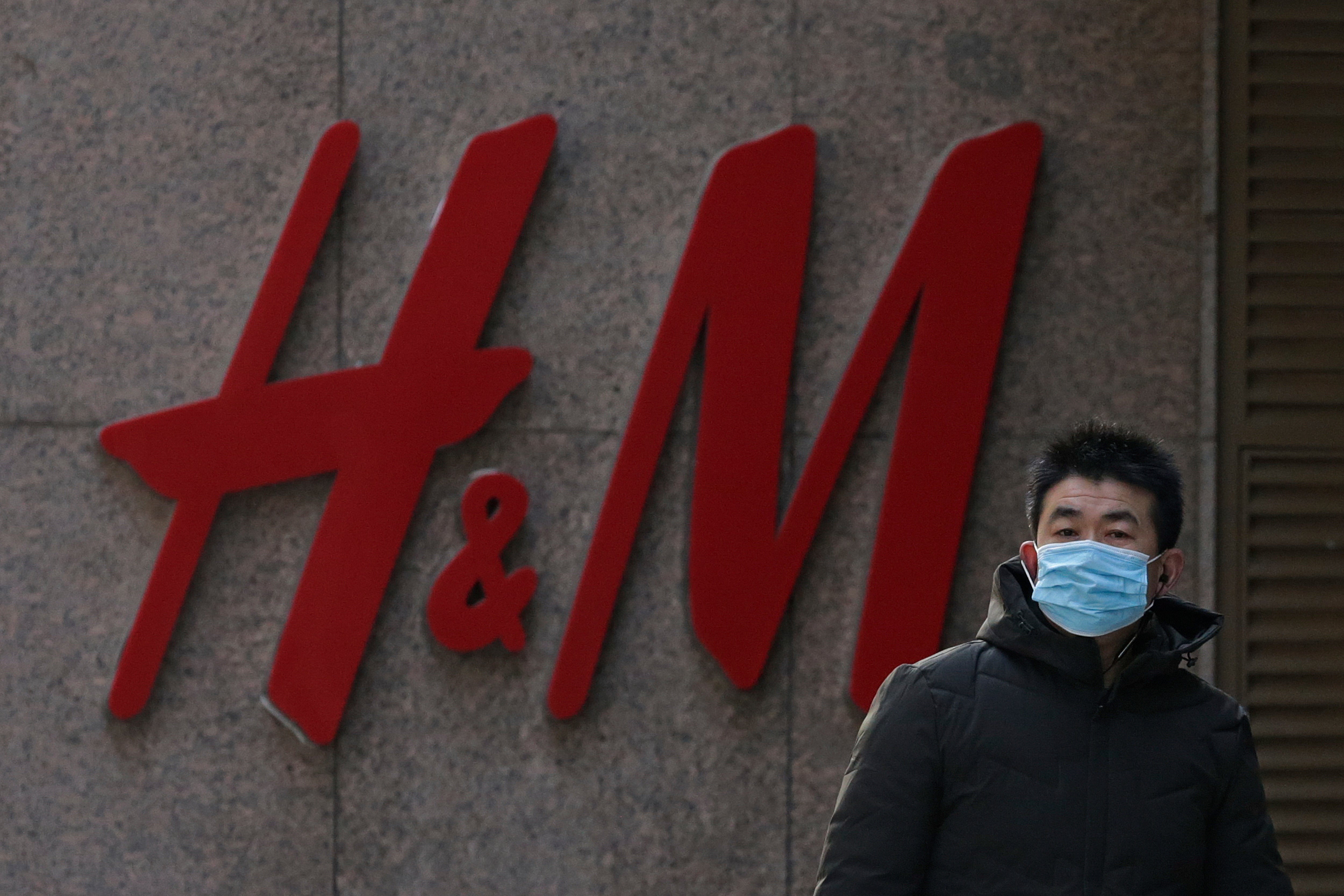China attacks foreign clothing, shoe brands over Xinjiang
China’s ruling Communist Party is lashing out at H&M and other clothing and footwear brands as it retaliates for Western sanctions imposed on Chinese officials accused of human rights abuses in the northwestern region of Xinjiang

Your support helps us to tell the story
From reproductive rights to climate change to Big Tech, The Independent is on the ground when the story is developing. Whether it's investigating the financials of Elon Musk's pro-Trump PAC or producing our latest documentary, 'The A Word', which shines a light on the American women fighting for reproductive rights, we know how important it is to parse out the facts from the messaging.
At such a critical moment in US history, we need reporters on the ground. Your donation allows us to keep sending journalists to speak to both sides of the story.
The Independent is trusted by Americans across the entire political spectrum. And unlike many other quality news outlets, we choose not to lock Americans out of our reporting and analysis with paywalls. We believe quality journalism should be available to everyone, paid for by those who can afford it.
Your support makes all the difference.China’s ruling Communist Party is lashing out at H&M and other clothing and footwear brands as it retaliates for Western sanctions imposed on Chinese officials accused of human rights abuses in the northwestern region of Xinjiang
The attacks began when the party’s Youth League on Wednesday called attention on its social media account to an H&M statement in March 2020 that it would stop buying cotton grown in Xinjiang. The Swedish retailer said it was “deeply concerned” about reports of forced labor there.
On Thursday, a party newspaper, the Global Times, cited Burberry, Adidas, Nike and New Balance as having made “cutting remarks” about Xinjiang cotton as early as two years ago. Celebrities including Wang Yibo, a popular singer and actor, announced they were breaking endorsement contracts with H&M and Nike.
Beijing often attacks foreign clothing, auto, travel and other brands for actions by their governments or to pressure companies to conform to its official positions on Taiwan, Tibet and other sensitive issues.
Companies usually apologize and change websites or advertising to maintain access to China’s populous market. But Xinjiang is an unusually thorny issue. Western brands face pressure at home to distance themselves from possible abuses.
More than 1 million people in Xinjiang, most of them from predominantly Muslim ethnic groups, have been confined to work camps, according to foreign researchers and governments. Beijing denies mistreating them and says it is trying to promote economic development and stamp out radicalism.
On Monday, the 27-nation European Union, the United States, Britain and Canada jointly announced travel and financial sanctions on four senior Chinese officials blamed for abuses in Xinjiang.
Beijing retaliated by saying it would impose unspecified penalties against European legislators and a German researchers who has publicized information about the detention camps.
H&M's statement last March cited a decision by the Better Cotton Initiative, an industry group that promotes environmental and labor standards, to stop licensing Xinjiang cotton because it was “increasingly difficult” to trace how it was produced. In September, H&M announced it would stop working with a Chinese manufacturer that was accused of using forced labor in a unit unrelated to the Swedish brand.
In January, Washington imposed a ban in January on cotton from Xinjiang, a major supplier to clothing producers for Western markets.
China’s official outrage has so far focused on Europe, possibly because relations with the EU were relatively amicable amid rancor with Washington over trade disputes and accusations of spying and technology theft.
Official criticism of H&M reflected that tone of grievance at being hurt by a friend.
“How can H&M eat Chinese rice and then smash China’s pot?” state television said in a commentary on Wednesday.
On Thursday, internet users pointed to clothing brands Uniqlo of Japan and The Gap of the United States as other possible offenders. It was unclear how many of those accounts were members of the public and how many were operated by the ruling party’s vast propaganda apparatus.
Pop star Wang Yibo's announcement that he was quitting as a Nike “brand ambassador" didn't mention Xinjiang but said he “firmly resists any words and actions that pollute China "
Others including actor Huang Xuan and Song Qian, a singer and actress also known as Victoria Song who is a former member of Korean pop group f(x), announced they would end endorsement contracts with H&M. Actress Tang Songyun said she was breaking ties with Nike.
Chinese athletic shoe brand ANTA announced it was pulling out of BCI, the industry cotton group.